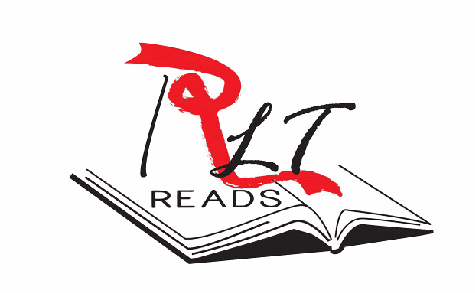Testing is important because the early you know your status, the early you get into treatment, the longer you are likely to live. Also, early anti-viral treatment lowers the chances by 96% that a person will pass HIV to their partners. Approximately 38% of newly diagnosed cases of HIV are people infected by persons that didn't know that they were infected. With 50,000 new cases of HIV in the United States a year, testing is critical. Treatment can becomes a form of prevention, but a person has to know their status to get to this point. Also, most people who know their HIV status try to protect their partners from infections
I get it! Testing is important! However, I also understand that there is still so much stigma around HIV. I think technology around HIV/AIDS has surpassed attitudes about HIV. Some days, I think we are still in the dark ages with how people feel about people with HIV. I blogged about that on Monday's Reflection.
I'm not sure that testing yourself alone is the best place to learn your status. If your test comes back negative their will be a hugh relief. But what happens when you test positive? Will you have enough courage to go to the doctors to begin the treatment process?
The guilt and shame that comes with an HIV diagnosis is imsurmoutable. A person has to be strong to get a positive HIV test result at home. For Real! I learned my status from the Red Cross after routinely donating blood. It was in the early days, so the meeting only lasted 5 minutes. There wasn't much to tell me back then a like today. The only hope was that I would never make a transition to AIDS. If I didn't know God, I mean if I hadn't already lived a life time by the time I was 23 and diagnosed with HIV, I would have walked straight into the Potomac River. But I did know God, and I have always believed that God's plan was bigger than my plan, so I kept it moving.
But what about the people who don't have that kind of solid strength? What about those who test positive and go into denial. I foresee a lot of denial and thats both easy and dangerous. It's easy because there are no HIV symptoms, NONE. Symptoms only come 7-10 years after you are infected with HIV and making a transition to AIDS. A person can test positive and walk away thinking, "This has got to be wrong, I don't feel sick."
Also, the home test is only 92 percent accurate for people who are actually positive, while 99.98 for those who do not have HIV. This means that 12 would get a false negative and 1 and 5,000 uninfected would get a false positive. Both of these come with a host self-explanatory problems.
At the end of the day, I still believe the best place to get tested for HIV is in a clinic that specializes in HIV testing, like an AIDS Clinic or the Health Department with trained HIV Counselors. Pre and Post Testing Counseling is important. It helps you to hash out your life in a way to truly understand your risk factors, it provides support and reassurance, no matter what your test result are. Taking an HIV test in Isolation can be dangerous.
If in fact you do decide to use the home HIV test, my recommendation is that no matter what your test results are, you should be re-tested with a blood draw by a health professional.
If you do test positive for sure, you must seek medical attention immediately, knowing that you are positive and doing nothing at all is just like not knowing. Expect you do know. Slowing disease progression should be your priority. Yes, it's true that HIV/AIDS is no longer the death sentence that it once was, but that is only true if you seek treatment as early as possible.
Technology has come a long way in the thirty-two years since the first cases of HIV in the United States. If we are going to take advantage of these advancements ,we should do it in the best way possible for our best benefit, otherwise it's futile.






 Tea began as medicine and morphed into a beverage of choice!
Tea began as medicine and morphed into a beverage of choice!


 I don't quite remember when I fell in love with tea but I do remember the most
I don't quite remember when I fell in love with tea but I do remember the most  Until recently I had never drank Peppermint Tea made with loose leaves. And Honestly, I will probably never go back. The freshness of loose Peppermint Tea cannot be denied. When I open the can of
Until recently I had never drank Peppermint Tea made with loose leaves. And Honestly, I will probably never go back. The freshness of loose Peppermint Tea cannot be denied. When I open the can of 

 I love to read! Inside a book I escape into someone else's life. There is something wonderful about turning to the next page of a wonderful story. Something intoxicating about the smell of the book and the story it brings to life. Reading brings me joy, and these days with my health in the balance, I find solace in my books.
I love to read! Inside a book I escape into someone else's life. There is something wonderful about turning to the next page of a wonderful story. Something intoxicating about the smell of the book and the story it brings to life. Reading brings me joy, and these days with my health in the balance, I find solace in my books.







